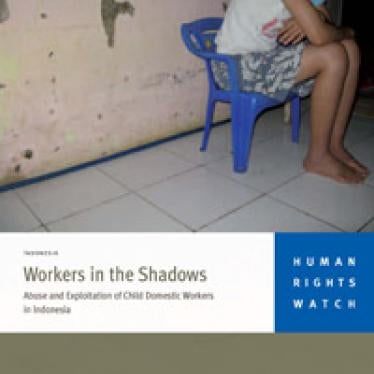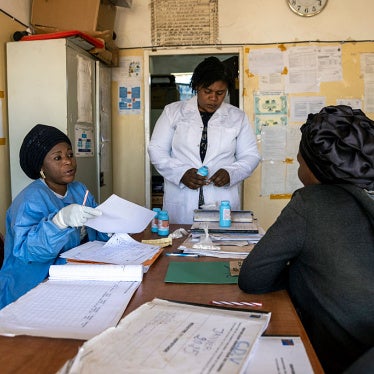In March, Religious Affairs Minister Suryadharma Ali made headlines by announcing plans to ban skirts above the knee, calling such attire “pornographic.” That month, the speaker of the House of Representatives, Marzuki Alie, proclaimed: “There have been a lot of rape cases and other immoral acts recently and this is because women aren’t wearing appropriate clothes . . . You know what men are like. Provocative clothing will make them do things.”
Sexual assault is a serious problem in Indonesia. A 2011 national study found that an average of 28 women are victims of sexual violence in Indonesia each day. Yet instead of blaming the rapists, senior government officials are blaming women themselves for being attacked.
This attitude is sexist, dangerous and wrong. It is also a distraction from initiatives that could actually prevent sexual assault.
If Indonesian lawmakers really want to stop rape and other sexual violence, they could start by providing legal protection for some of the most vulnerable women and girls: domestic workers.
Human Rights Watch has been investigating the abuse of domestic workers in Indonesia since 2005. We found that girls in Indonesia typically enter domestic work between the ages of 12 and 15. Many said their employers forbid them to leave the workplace to visit family or to receive any visitors, leaving them isolated, depressed and susceptible to sexual harassment and assault.
Many suffered some form of physical, psychological or sexual abuse, including rape and murder. One girl, Dian, began working for an older male cousin when she was 13. She told Human Rights Watch: “I was forced to have sex with him. He threatened me. He said he would hit me if I told anyone ... This happened for three years.”
Sexual abuse is not a domestic worker’s only concern. Most of the girls we interviewed worked excruciating 14- to 18-hour days, 7 days a week. Far too often workers are driven to exhaustion, exploited for little or no pay and starved. Because labor laws exclude domestic workers from protection, employers are rarely penalized.
Police investigations into such abuse are sluggish, inadequate, and frequently lead to dropped cases. During interviews with Human Rights Watch, officials at all levels of government underplayed the importance of and even denied there is a problem.
This apathy, along with the backward thinking of politicians like Marzuki Alie, has led to a lack of conviction and urgency in legislative reforms. A bill designed to protect domestic workers has been on the agenda since 2010, but it is still gathering dust on legislators’ desks.
A year ago the International Labor Organization adopted a groundbreaking international treaty known as the Domestic Workers Convention. The treaty offers hope for domestic workers that their labor rights will be respected, and they will have greater protection from violence.
By ratifying the convention, Indonesia would be making a commitment to ensure that domestic workers get effective protection against all forms of abuse, harassment and violence. The treaty would also provide protection from labor exploitation, including a minimum wage, overtime limits, holidays and mandatory employment contracts.
Slowly, steps have been taken in the right direction. In April the government ratified the Migrant Worker Convention, to better protect Indonesian workers abroad. The government should show the same concern for workers at home, and move quickly to adopt the proposed domestic worker bill and ratify the Domestic Workers Convention.
It is time for the government to recognize that when it comes to stopping sexual assault, legal protection goes further than longer skirts.
Noah Beaudette is the associate for the children’s rights division at Human Rights Watch.







